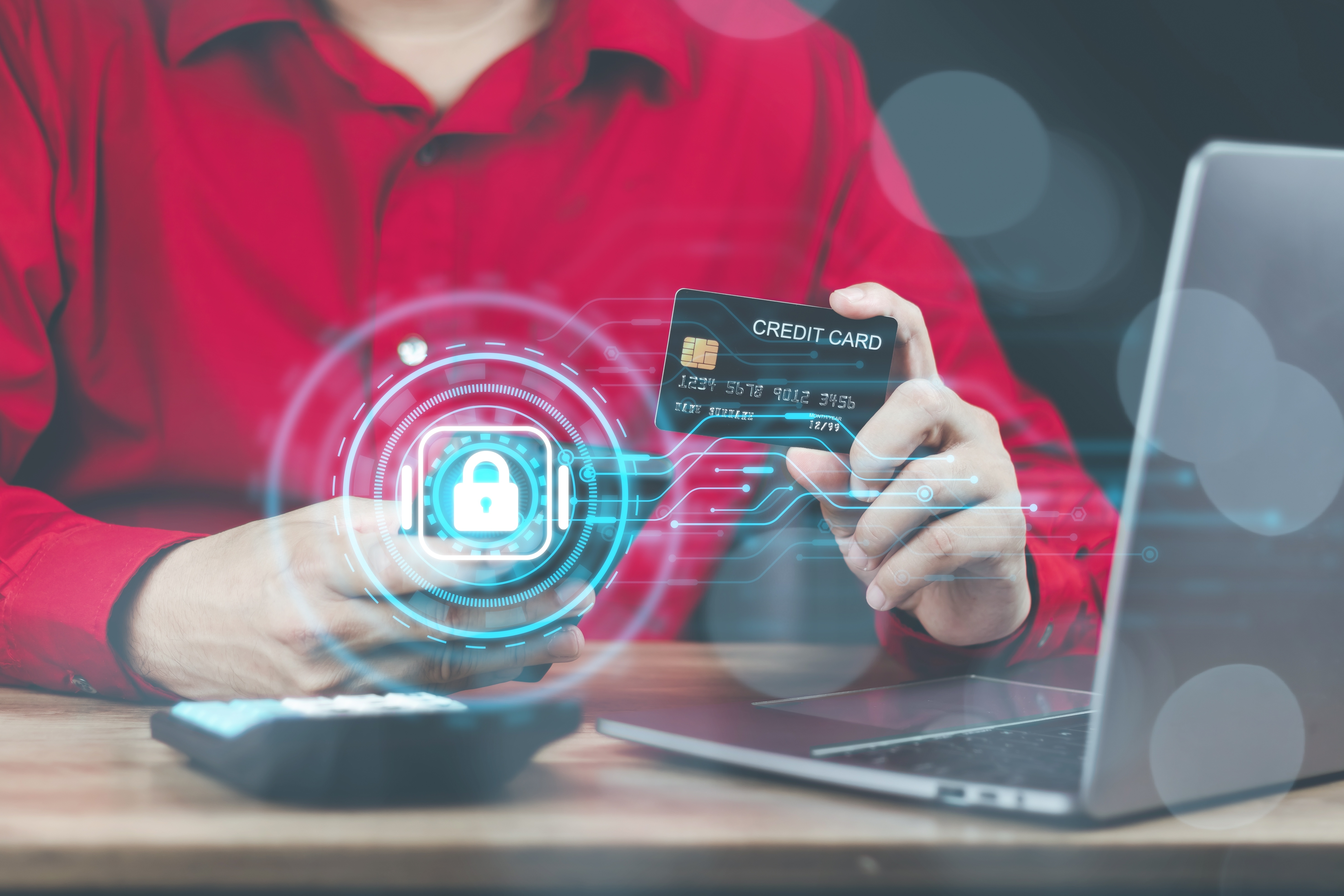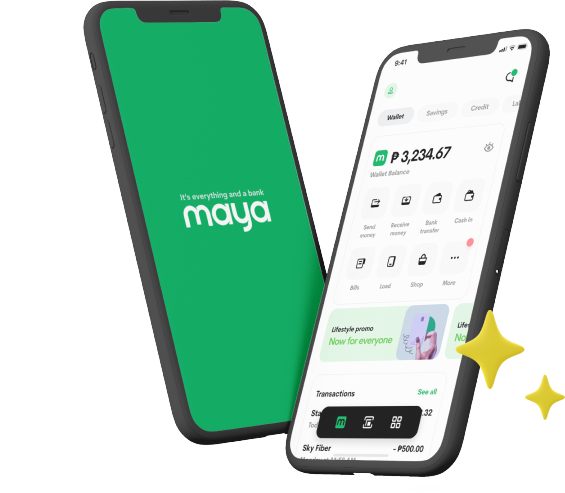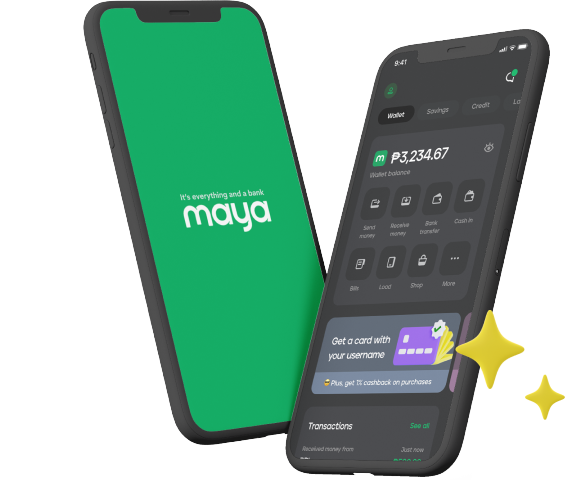
In the past, people relied on cash reserves, emergency funds, or borrowing from friends and family to manage emergency expenses. Today, credit cards are becoming more accessible—and thus a more reliable financial tool for dealing with urgent situations. Now that many issuers allow you to submit your credit card application online and make quicker approvals, it’s fairly easy to apply for a reliable credit card to use as a backup in case of emergencies.
The Maya Landers Cashback Everywhere Credit Card is an example of a card that can help support an individual’s financial preparedness strategy. With an online credit card application process you can complete on your Maya app, comprehensive transaction tracking, an unbeatable rewards program, and a host of other benefits, there are few better cards for Landers members to turn to in a crisis. It’s the perfect complement to a well-funded cash reserve or emergency fund—all of which, working together, can help you handle urgent costs while keeping your essential savings intact.
At Maya, we understand just how much a sound financial strategy can ease the stress of even the direst situation. Let’s explore the role a well-chosen credit card can play in your emergency preparedness strategy.
Why You Should Have an Emergency Credit Card
Immediate Access to Funds
How fast you act matters during an emergency. Applying for a loan from a traditional bank or waiting for an insurance payout can take days or even weeks, but a credit card allows you to pay for urgent expenses immediately. Unlike personal loans or payday advances, credit cards also don’t require a separate approval process for each transaction. Whether you need to cover a hospital bill, book last-minute travel, or replace a necessary household item, having a credit card with available credit ensures that you won’t be left scrambling.
Rewards on Emergency Spending
While no one likes spending money on unexpected problems, a good rewards credit card can soften the financial impact by giving something back. The cashback, points, or travel miles you earn on emergency purchases can help offset costs down the line.
For example, the Maya Landers Cashback Everywhere Credit Card provides up to 5% cashback at Landers, 2% on dining, and 1% on other eligible purchases.* This means that even if you’re currently dealing with an urgent situation, you’re still earning rewards that you can use toward future expenses, especially if you do the bulk of your everyday shopping at Landers. The cashback points you earn on your card are convertible to Landers vouchers, which can come in handy while your finances recover.
Security and Protections for Essential Purchases
Emergencies often require quick decision-making, which sometimes involves transacting in unfamiliar places or purchasing expensive items on short notice. Some credit cards come equipped with security features that cash and debit cards simply don’t provide, such as:
- Dynamic or temporary CVVs: Making important purchases online will be easier to do if you feel assured that fraudsters can’t readily access your card details. Credit cards with temporary or dynamic CVVs can make online transactions much safer for this reason. The Landers Cashback Everywhere Credit Card, for instance, generates a dynamic CVV that’s only valid for 24 hours at a time—and the number changes every time you open the Maya app.
- Fraud protection: If your card is lost or stolen, you can dispute unauthorized charges, and many credit card providers offer zero-liability policies.
- Purchase protection: Some cards provide coverage for damaged, lost, or stolen items, which is useful when replacing essential goods in an emergency.
Best Practices for Using Credit Cards in Emergencies
Use Your Card as a Backup for an Emergency Fund
A credit card should never replace a dedicated emergency fund. Think of it instead as a useful backup. Ideally, you should have three to six months’ worth of expenses saved for emergencies. Make these funds your first line of defense in an emergency, and turn to your credit card only when what you need to spend exceeds your available savings.
Choose a Card with Strong Benefits
Not all credit cards are created equal, and some are better suited for emergencies than others. When selecting a card for emergency use, look for one that offers:
- Low interest rates to keep borrowing costs manageable if you need to carry a balance.
- Cashback or rewards to offset expenses and help with financial recovery.
- Security features such as fraud protection, chargeback rights, and purchase protection.
- Perks like travel insurance or roadside assistance that can be helpful in specific emergency situations.
Avoid Maxing Out the Card
It can be tempting to rely on credit when dealing with financial strain, but maxing out your emergency card can create new problems. A high credit utilization rate (using too much of your available credit) can lower your credit score and make it harder to qualify for additional financial assistance if needed.
Instead, use your emergency card strategically to cover only the most urgent expenses. If possible, split payments across both cash and credit to avoid reaching your credit limit.
Have a Repayment Plan in Place
A credit card can help you manage financial shocks, but it should never become a long-term debt trap. Before using your emergency credit card, consider how you’ll pay it off. Prioritize paying down your emergency balance as soon as possible to avoid excessive interest charges. If you’re unable to pay it off immediately, aim to make more than the minimum payment each month to keep interest from accumulating.
Financial emergencies are unpredictable, but having the right credit card can help protect your peace of mind while managing unexpected expenses. Still in need of a reliable option? Consider adding the Landers Cashback Everywhere Credit Card to your toolkit. Apply today and experience unparalleled financial flexibility and airtight security in one pocket-sized package, care of Maya.
*Transactions that don’t qualify include: cash in, cash advance, quasi cash purchases, casinos and gambling, fuel, supermarket, pharmaceuticals, utilities, telco, and government.
You might also like
These Stories on Maya Bank




